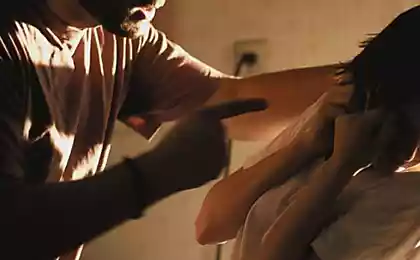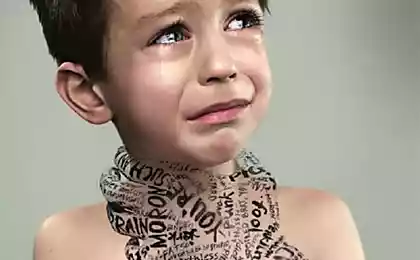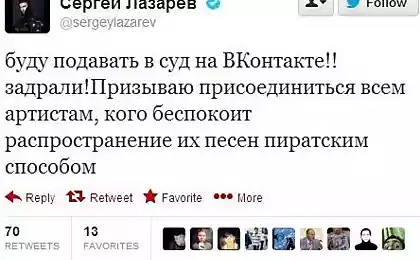737
How to harm the child, without resorting to a beating
Negative emotional impact do not leave marks on the skin, but hurt can no less than physical violence.
"Gods," "merchants" and "sheep": what styles of parenting can be harmful to children?
Childhood is supporting the institution that forms the society, its well-being is directly linked to the welfare and health of each child. Therefore, public organizations, e.g. the world Health Organization and UNICEF (the UN children's Fund), make recommendations on how to create a safe and happy childhood, the child has grown physically and mentally healthy.

Rare the parents go to the who site and read above that there is recommendations on education. Usually in the course are the traditional methods based on experience. Broken in adolescence parents use violence in the upbringing of his child, because I know no other ways to reach out to the child and affect his behavior. This applies to educational policies that have no apparent consequences for the health and safety of the child. Educational methods often drift from generation to generation, giving rise again and again, mentally unstable, anxious, confined adults.
The child grew up as a healthy person, you need to protect it from any kind of violence. Physical, sexual abuse and neglect — obvious causes of problems in a child.
Emotional abuse of a child criminal is not punished, but the consequences are traumatic for the psyche of the little man, as the shock strap to the body.
Systematic humiliation, the manipulation, the suppression of the will of children entrenched in the Arsenal of many a parent. American psychiatrists Susan Forward and Craig Buck even coined the term "bad parents" (toxic parents) to identify those who resort to emotional violence in the upbringing and harms self-esteem, attitudes, and sometimes the psyche of children.
Here are the types of "harmful parents" there.
"God,"Confident of the correctness and infallibility of the parent. Requires a child to worship, unconditional love and unquestioning obedience. Often in this category are the fathers. Emotionally refers to the child as "subject" and considers that the meaning of children is an expression of gratitude to the parents for the gift of existence.

Such parents use corporal punishment and have strict rules, even if they don't need it. Child of "God" is prone to obedience, is closed. Fear and reverence for the parent develops into the tendency to cheat in a rebellious teenage period. In adult life, such children will be unable to make their own decisions and will be looking for a new "God" in its second half or a close friend.
The vocabulary of "God": "I know better", "You owe me", "If I hadn't..."
The "critic"Evaluates the child and compares it with other children. Draws the image in my head of the perfect baby and makes the son or daughter fit under unattainable patterns. Sensitive to "lag" their child from their peers, requires great effort and diligence, establishes a rigid framework and discipline, supporting their systematic humiliation. Especially dangerous critics, who have several children, and then for the "gold standard" does not even need to contact the outside world.
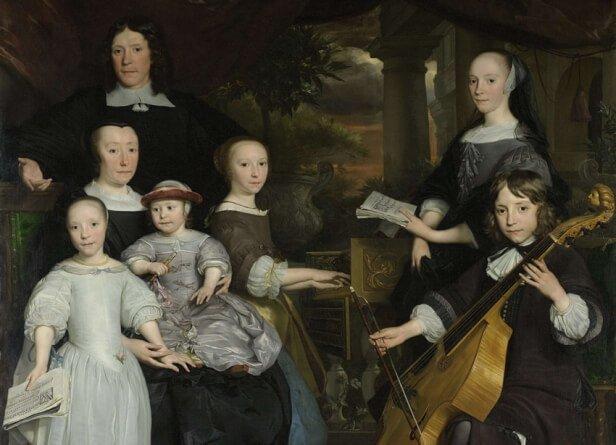
The danger of this type of emotional abuse — child's low self-esteem syndrome "failed model" when compared with brothers or sisters.
The vocabulary of "Criticism": "all normal children, and I have...", "Why Angelidaki five, and you have three?", "That's your big brother's an angel and you some punishment."
"Coach"such parents have a lot in common with the "critics". Of their children, they also compare with others, but to motivate them to win. Competitive spirit nourishes from inside the coach, he considers the child as the object of his pride and at every opportunity, demonstrates it to others. As a rule, the coaches force children to succeed in areas in which are unable to succeed themselves. For fathers this is usually sport, and for mothers, foreign languages or playing musical instruments.
Interests and aptitude of the child "coaches" do not take into account. Their children grow up in an atmosphere of constant competition.
Emotionally it sets up the child in pursuit of other goals that does not bring happiness. Successful in parents ' eyes Champions turn into a exhibit in the hall of fame's set of honors. And those who failed to achieve success, feel guilty for unjustified expectations.
Lexicon "Coach": "I once taught English and very sorry that do not repeat my mistakes!", "Nick, give us Polonez Oginski, please aunt Kate", "Second place? Why not first?".
"Merchant of Venice"is a Vivid illustration of economic violence against the psyche of the child. This type of parent doesn't know unconditional love, so necessary to the child. The actions, feelings and people for such parents there is a very real price tag. They live by the principle "you — I, I — you" bribe kids sometimes bribes from them, ultimatums, and always waiting sometimes inadequate return from the child for their actions or feelings.
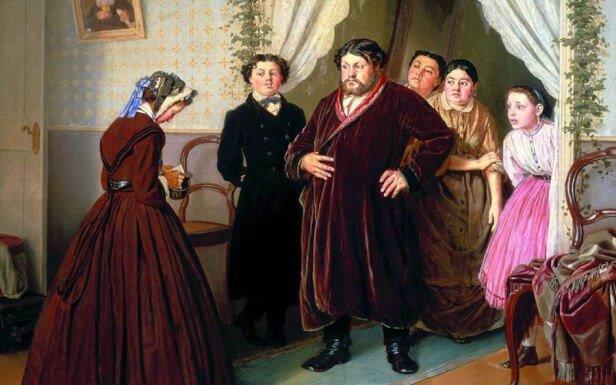
Baby merchant are incapable of sincerity and trust, as it believes that everything in life must be earned to earn. In adult life, such children are often whiny, cheating, suspicious to do something so selfless and start to manipulate people by classifying things and all the product categories.
Lexicon "Merchant": "If you calm down, ladies.", "For every five get one hundred rubles," "I gotta carry you, you'll do what I want", "For you a thousand, go for a walk by myself, I don't have time", "Wash the dishes, I love you for this is love will."
"Sheep"Subtle manipulator-victim. Often it is the parent of a female, sometimes a single mom who knows that pity can get what you want. It is good actors who can pull the tears and faking a heart attack to soften even the most impenetrable of a teenager.
The reason for their disappointments and suffering, I think, naturally, her child, which is obliged to be there and take care of the parent and its interests. In fact, the child is in emotional bondage, feels his debt and begins to neglect their own interests, losing his own "I".
Lexicon "OnVicki": "I'm the best years put....", "You don't pity me...", "Ungrateful, on his deathbed, and a glass of water not served...", "You are my cross!".
"Janus"fall into this category parents are liars. These parents have generously handed out promises that are not going to perform, lie and dissemble. Their lies of "two-faced" does not justify and not feel guilty. In the education of these parents are prone to hypocrisy.
A Prime example: Smoking parents scolding teenagers who were caught with cigarettes.
Over time, these parents lose the child's confidence. And seeing the impunity of lies and hypocrisy, children perceive this behavior as most profitable, so the liar syndrome is often hereditary.
The vocabulary of "two-faced": "you never know, what I promised!", "As he gave the word, and took it back," "Oh, I forgot," "I never said that!".
"Sunday"Sunday dad (at least — Sunday my mom) happens not only in families where parents live separately. This parent may be any adult, not knowing how to allocate your time between family, work and recreation. Workaholic, avid hunters or lovers to dig deeper in the guts of the car in the garage appreciate their professional or personal interests higher than family life. The explanation given is that they earn money and that they need to relax. Important events in the life of the baby such parents without remorse passed.
The family is in the category of duties, and time spent with the child, counts as service.
Children "Sunday" parent's feel their uselessness, feeling abandoned and alone. They try to jump above their heads to attract attention. Over time, if their efforts are useless, they fail to reckon with their opinion, and sometimes to communicate.
Lexicon "Sunday": "I don't Have time", "maybe another time, I'm busy", "I earn money, what more do you want?".
PartizanSophisticated manipulator, reminiscent of the hermit crab. In case of danger or disagreement of such parent ceases to communicate with the child, shut in his shell and taking a vow of silence. From the outside it may seem mad, but more often it's just a resting position, which is to force the child to do what is required of him.
Getting into the situation of the boycott, dependent little man is in constant emotional stress, feeling guilt and need to reconcile. So he agrees to anything and fulfills all the desires of the offended parent, and in parallel learns to keep their interests and opinions to yourself for the sake of others.
Vocabulary Partisan: —
"Hen"Emotional rapist, fluent in the skills of hyperopic. Escorts to and from school, feeds, waters, sings lullabies, monitors the health of the baby, in the section driving... Sounds great, great mother or an amazing dad! However, read the list to: select for child's friends, hair, food preferences, reading of correspondence, is required to report on each step and does not make their own decisions.
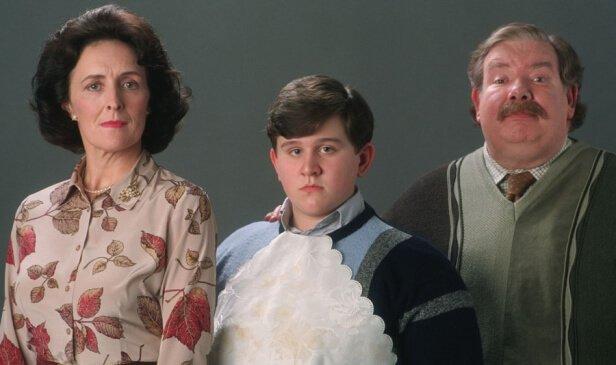
This category includes mothers who have not forgotten how to identify with the child even when he grew up and is able to do something for yourself. A woman does not say "I" or "my child", she says "we". Even if a son under two meters tall, mom will be touched when "we eat his beloved mother's borsch". Hyperuricaemia difficult parents let their child into adulthood, and sometimes not released at all. They are eagerly looking for a reason to make children dependent on them.
"Hen" live for the children, they have only one interest: that the little child was happy. And next to her mother. Because she's scared of being alone.
How dangerous such emotional torture? The child feels a sense of a parent's life, and to deprive him of that sense is a betrayal of a loved one. These children are very dependent on the views of parents in adulthood, which prevents them to create their own family, build a career or simply to do what they like. They are doing everything to "hen" was happy. Or, on the contrary, freed from emotional slavery, and subconsciously blame themselves for the misfortune of the one who raised him.
Lexicon "Hen", "Look mom, moms know best", "No, we will buy a green sweater, he is more than pink", "This girl is not suitable for you, Olya...".
What if I — "hen"?Or "critic"? Or "partisan"?.. If our gallery of emotional rapists you found your portrait, the chance to fix the bike, because the recognition of the problem is the first step to its solution.
Rare or that model in its pure form. "Hen" is sometimes used methods "sheep" and the "gods" part-time work part-time "trainers".
All these types are practicing the same kind of violence against children — they play on emotions, manipulating emotions to get the child that parents need. Their behavior they're trying to drown out his own memories, complexes, negative experiences or fears.Therefore, the recommendations for all the above types will be shared.
The perfect parent to be impossible, because everyone has their weaknesses, and everyone makes mistakes. The interests of fathers in conflict and will conflict with the interests of the children. This is a natural process, in which a new unique individual with its own set of values based on experience.
Adults draw conclusions about their experiences of childhood, focussing on key events of the tender age.
What do you remember from your younger years? How dad taught you to ride a bike, my mother's support during a difficult exam? Or the father was threatened with the strap for the slightest fault, and the mother promised to come down with a nervous breakdown, if you will not leave this "awful Gena" from the ninth "B"?
Now, when you yourself become a parent you must understand that the children will remember all their hurts. When they grow up, their experience will affect the actions, behavior, and methods of upbringing their children. You can give the child a childhood that he will remember fondly.published
Author: Maria Lazareva
P. S. And remember, just changing your mind — together we change the world! ©
Source: //newtonew.com/parenting/toxic-parents
"Gods," "merchants" and "sheep": what styles of parenting can be harmful to children?
Childhood is supporting the institution that forms the society, its well-being is directly linked to the welfare and health of each child. Therefore, public organizations, e.g. the world Health Organization and UNICEF (the UN children's Fund), make recommendations on how to create a safe and happy childhood, the child has grown physically and mentally healthy.

Rare the parents go to the who site and read above that there is recommendations on education. Usually in the course are the traditional methods based on experience. Broken in adolescence parents use violence in the upbringing of his child, because I know no other ways to reach out to the child and affect his behavior. This applies to educational policies that have no apparent consequences for the health and safety of the child. Educational methods often drift from generation to generation, giving rise again and again, mentally unstable, anxious, confined adults.
The child grew up as a healthy person, you need to protect it from any kind of violence. Physical, sexual abuse and neglect — obvious causes of problems in a child.
Emotional abuse of a child criminal is not punished, but the consequences are traumatic for the psyche of the little man, as the shock strap to the body.
Systematic humiliation, the manipulation, the suppression of the will of children entrenched in the Arsenal of many a parent. American psychiatrists Susan Forward and Craig Buck even coined the term "bad parents" (toxic parents) to identify those who resort to emotional violence in the upbringing and harms self-esteem, attitudes, and sometimes the psyche of children.
Here are the types of "harmful parents" there.
"God,"Confident of the correctness and infallibility of the parent. Requires a child to worship, unconditional love and unquestioning obedience. Often in this category are the fathers. Emotionally refers to the child as "subject" and considers that the meaning of children is an expression of gratitude to the parents for the gift of existence.

Such parents use corporal punishment and have strict rules, even if they don't need it. Child of "God" is prone to obedience, is closed. Fear and reverence for the parent develops into the tendency to cheat in a rebellious teenage period. In adult life, such children will be unable to make their own decisions and will be looking for a new "God" in its second half or a close friend.
The vocabulary of "God": "I know better", "You owe me", "If I hadn't..."
The "critic"Evaluates the child and compares it with other children. Draws the image in my head of the perfect baby and makes the son or daughter fit under unattainable patterns. Sensitive to "lag" their child from their peers, requires great effort and diligence, establishes a rigid framework and discipline, supporting their systematic humiliation. Especially dangerous critics, who have several children, and then for the "gold standard" does not even need to contact the outside world.

The danger of this type of emotional abuse — child's low self-esteem syndrome "failed model" when compared with brothers or sisters.
The vocabulary of "Criticism": "all normal children, and I have...", "Why Angelidaki five, and you have three?", "That's your big brother's an angel and you some punishment."
"Coach"such parents have a lot in common with the "critics". Of their children, they also compare with others, but to motivate them to win. Competitive spirit nourishes from inside the coach, he considers the child as the object of his pride and at every opportunity, demonstrates it to others. As a rule, the coaches force children to succeed in areas in which are unable to succeed themselves. For fathers this is usually sport, and for mothers, foreign languages or playing musical instruments.
Interests and aptitude of the child "coaches" do not take into account. Their children grow up in an atmosphere of constant competition.
Emotionally it sets up the child in pursuit of other goals that does not bring happiness. Successful in parents ' eyes Champions turn into a exhibit in the hall of fame's set of honors. And those who failed to achieve success, feel guilty for unjustified expectations.
Lexicon "Coach": "I once taught English and very sorry that do not repeat my mistakes!", "Nick, give us Polonez Oginski, please aunt Kate", "Second place? Why not first?".
"Merchant of Venice"is a Vivid illustration of economic violence against the psyche of the child. This type of parent doesn't know unconditional love, so necessary to the child. The actions, feelings and people for such parents there is a very real price tag. They live by the principle "you — I, I — you" bribe kids sometimes bribes from them, ultimatums, and always waiting sometimes inadequate return from the child for their actions or feelings.

Baby merchant are incapable of sincerity and trust, as it believes that everything in life must be earned to earn. In adult life, such children are often whiny, cheating, suspicious to do something so selfless and start to manipulate people by classifying things and all the product categories.
Lexicon "Merchant": "If you calm down, ladies.", "For every five get one hundred rubles," "I gotta carry you, you'll do what I want", "For you a thousand, go for a walk by myself, I don't have time", "Wash the dishes, I love you for this is love will."
"Sheep"Subtle manipulator-victim. Often it is the parent of a female, sometimes a single mom who knows that pity can get what you want. It is good actors who can pull the tears and faking a heart attack to soften even the most impenetrable of a teenager.
The reason for their disappointments and suffering, I think, naturally, her child, which is obliged to be there and take care of the parent and its interests. In fact, the child is in emotional bondage, feels his debt and begins to neglect their own interests, losing his own "I".
Lexicon "OnVicki": "I'm the best years put....", "You don't pity me...", "Ungrateful, on his deathbed, and a glass of water not served...", "You are my cross!".
"Janus"fall into this category parents are liars. These parents have generously handed out promises that are not going to perform, lie and dissemble. Their lies of "two-faced" does not justify and not feel guilty. In the education of these parents are prone to hypocrisy.
A Prime example: Smoking parents scolding teenagers who were caught with cigarettes.
Over time, these parents lose the child's confidence. And seeing the impunity of lies and hypocrisy, children perceive this behavior as most profitable, so the liar syndrome is often hereditary.
The vocabulary of "two-faced": "you never know, what I promised!", "As he gave the word, and took it back," "Oh, I forgot," "I never said that!".
"Sunday"Sunday dad (at least — Sunday my mom) happens not only in families where parents live separately. This parent may be any adult, not knowing how to allocate your time between family, work and recreation. Workaholic, avid hunters or lovers to dig deeper in the guts of the car in the garage appreciate their professional or personal interests higher than family life. The explanation given is that they earn money and that they need to relax. Important events in the life of the baby such parents without remorse passed.
The family is in the category of duties, and time spent with the child, counts as service.
Children "Sunday" parent's feel their uselessness, feeling abandoned and alone. They try to jump above their heads to attract attention. Over time, if their efforts are useless, they fail to reckon with their opinion, and sometimes to communicate.
Lexicon "Sunday": "I don't Have time", "maybe another time, I'm busy", "I earn money, what more do you want?".
PartizanSophisticated manipulator, reminiscent of the hermit crab. In case of danger or disagreement of such parent ceases to communicate with the child, shut in his shell and taking a vow of silence. From the outside it may seem mad, but more often it's just a resting position, which is to force the child to do what is required of him.
Getting into the situation of the boycott, dependent little man is in constant emotional stress, feeling guilt and need to reconcile. So he agrees to anything and fulfills all the desires of the offended parent, and in parallel learns to keep their interests and opinions to yourself for the sake of others.
Vocabulary Partisan: —
"Hen"Emotional rapist, fluent in the skills of hyperopic. Escorts to and from school, feeds, waters, sings lullabies, monitors the health of the baby, in the section driving... Sounds great, great mother or an amazing dad! However, read the list to: select for child's friends, hair, food preferences, reading of correspondence, is required to report on each step and does not make their own decisions.

This category includes mothers who have not forgotten how to identify with the child even when he grew up and is able to do something for yourself. A woman does not say "I" or "my child", she says "we". Even if a son under two meters tall, mom will be touched when "we eat his beloved mother's borsch". Hyperuricaemia difficult parents let their child into adulthood, and sometimes not released at all. They are eagerly looking for a reason to make children dependent on them.
"Hen" live for the children, they have only one interest: that the little child was happy. And next to her mother. Because she's scared of being alone.
How dangerous such emotional torture? The child feels a sense of a parent's life, and to deprive him of that sense is a betrayal of a loved one. These children are very dependent on the views of parents in adulthood, which prevents them to create their own family, build a career or simply to do what they like. They are doing everything to "hen" was happy. Or, on the contrary, freed from emotional slavery, and subconsciously blame themselves for the misfortune of the one who raised him.
Lexicon "Hen", "Look mom, moms know best", "No, we will buy a green sweater, he is more than pink", "This girl is not suitable for you, Olya...".
What if I — "hen"?Or "critic"? Or "partisan"?.. If our gallery of emotional rapists you found your portrait, the chance to fix the bike, because the recognition of the problem is the first step to its solution.
Rare or that model in its pure form. "Hen" is sometimes used methods "sheep" and the "gods" part-time work part-time "trainers".
All these types are practicing the same kind of violence against children — they play on emotions, manipulating emotions to get the child that parents need. Their behavior they're trying to drown out his own memories, complexes, negative experiences or fears.Therefore, the recommendations for all the above types will be shared.
- Stop to take her child as an object. In your hands is not a trophy, not a cross and not a ray of hope, and life and human well-being.
- Serious about child's opinion. But do not indulge him in everything.
- Accept the fact that kids need their space and freedom of choice.
- Communicate with your child, as an adult, share with him, be honest and Frank, and will get the same in return.
- Collaborate with children. Family is a micro society where everyone has a voice and contributes to overall happiness.
- Remember that once you too were a child, ask yourself, was your childhood happy? Why did you become such a parent? Can you copy the behavior of their parents, or Vice versa, try to do everything contrary to their covenants?
- Do not hesitate to contact a specialist, if you can't independently adjust its educational policy.
- Do not ignore the emotional abuser in the family, try to establish contact and find out the reasons of such behavior. If necessary, persuade him to consult a psychologist.
The perfect parent to be impossible, because everyone has their weaknesses, and everyone makes mistakes. The interests of fathers in conflict and will conflict with the interests of the children. This is a natural process, in which a new unique individual with its own set of values based on experience.
Adults draw conclusions about their experiences of childhood, focussing on key events of the tender age.
What do you remember from your younger years? How dad taught you to ride a bike, my mother's support during a difficult exam? Or the father was threatened with the strap for the slightest fault, and the mother promised to come down with a nervous breakdown, if you will not leave this "awful Gena" from the ninth "B"?
Now, when you yourself become a parent you must understand that the children will remember all their hurts. When they grow up, their experience will affect the actions, behavior, and methods of upbringing their children. You can give the child a childhood that he will remember fondly.published
Author: Maria Lazareva
P. S. And remember, just changing your mind — together we change the world! ©
Source: //newtonew.com/parenting/toxic-parents

